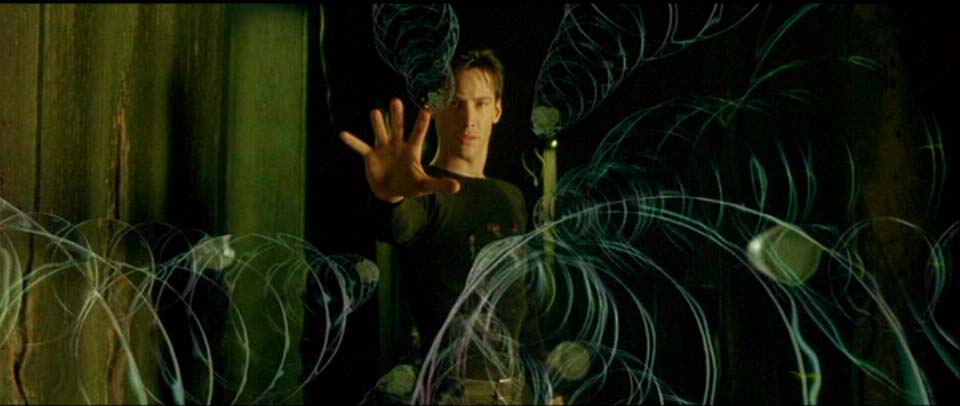To date,
I haven't written anything reactionary; however, it's also important to accept
that truth does not exist in a vacuum, hence the reason for this post. The
subject of debate is the opinion article in the New York Times entitled, "Are We
Really Conscious?" written
by Princeton-educated Michael Graziano PhD (in neuroscience) and currently an
associate professor at his alma mater. His psychology work is just one part of
his CV, which also includes 3 literary novels, children's books, and symphonic
works.
While I
haven't delved into these works to discover their merit, I think his most
recent work in the New York Times is ‘more of the same’ when it comes to the
sophistry of the modern academic sciences. While I certainly cannot hope to
refute his claims on grounds of neuroscience (his expertise), I must
demonstrate a number of fallacious
assumptions made on logical and philosophical grounds (my expertise).
To
summarize the opinion, Dr. Graziano is presenting his "attention
schema" theory of human consciousness. The theory begins by defining two
terms:
attention: a
physical phenomenon
awareness: our
brain’s approximate, slightly incorrect model of our attention
The
example he uses of the theory in practice is our perception of light. The
wavelength of the light is the true attention of the light, or in his words,
"a real, mechanistic phenomenon that can be programmed into a computer
chip." The occurrence of the light, therefore, is something entirely
quantitative, whereas our brain creates the "cartoonish reconstruction of
attention" that we know as 'color', which is our awareness. While the
quality of color has been assumed to be only a construct of the human mind
since the Enlightenment philosophers, science has proven that white light is
actually comprised of light with many different wavelengths, meaning that light
is comprised of many (in fact, all) colors. Therefore, the attention is that
data of many wavelengths/colors and the awareness is what we'd mistakenly call
"white light".
What does
this have to do with consciousness? Dr. Graziano equates our brains as
informational storehouses, like computers, whose sole purpose is to retain and
process information. The subject of consciousness arises when faced with the
difficult question of why the brain would inefficiently waste energy on
defining itself as something separate from its surroundings and be aware that
its experiences are subjective. He then presents his attention schema theory to
explain consciousness as a rude approximation of the information it processes,
similar to how white light is only an erroneous estimation of all colors
together.
However,
a critical look at Dr. Graziano’s distrust for our intellect reveals a
misplaced trust in the inventions created by our very own intellect. (I will,
for the purposes of this post, roughly equate Dr. Graziano’s term ‘awareness’
to the term, ‘intellect’, because it is our intellect with which we interpret
the information received from our senses) Our intellect was the creational
source of the computer, the camera, and the spectrometer; these human
inventions are as limited in their design as their poor human inventors.
Returning to Dr. Graziano's example of the computer chip, it is our intellects that program that computer chip to
recognize wavelengths. They do not function any different than how we designed
them to function, and if they see phenomena that we don’t, it is only because
we possessed the intellect to speculate that phenomena’s existence.
Even the
scientific terminology used by Dr. Graziano is a creation of the human
intellect of which we should be skeptical. Pre-modern science, we created the
vocabulary of ‘green’ and ‘white’ light because those are the terms we used to
describe the phenomenon of different kinds of light. With modern science, we
created the vocabulary of ‘495 nm < λ < 570 nm’ and ‘390 < Σλ < 700
nm’ to describe the exact same phenomenon. Both vocabularies are constructs of
our own intellects, intended to conform to an external reality and
differentiated only by their specificity. And still, our scientific expression
is limited by the understanding of our intellect. Just as Newton’s theory of
gravitation was not the final word, so too many of our other constructs of intellect
(i.e. the color of light, the wavelength of light, etc.) will be overturned
again and again as our intellect struggles to grasp the natural cosmos. So in this sense, we cannot escape from our own intellect!
These were the words
chosen by Dr. Graziano, but for the sake of argument, we can assume that Dr.
Graziano oversimplified his definition of 'attention' for the benefit of the
reader. An alternate understanding may be the true nature of the phenomenon itself
that is unknown to us at the time. For example, before Newton, scientists did
not yet realize that white light was comprised of all colors of the visible
spectrum and they their combined wavelength creates white light. Now, let's
suppose that this is the correct understanding of light as it really is
(meaning, that this is what white light essentially is, and no further
modification to our electromagnetic theory will be ever necessary). This makes
the definition of attention to be independent of anything man-made.
But even with this
understanding, Dr. Graziano still commits two debilitating errors: one logical
and the other epistemological. The logical error, being the more rudimentary,
we will examine first. Dr. Graziano uses man’s mistaken postulate that white light
is purely a single color to cast doubt over the existence of man’s
consciousness. He uses the erroneous attribution of quality of one thing to
demonstrate the erroneous attribution of existence to another. As with the
popular saying concerning "apples and oranges", this is not a
logically coherent analogy. Basic logic instructs that attributes are predicates
of the subject. For example, the statement, “White light is not a single color” has ‘white
light’ as the subject, and “not a single color” as a negative predicate attributed
to that subject. However, it would be absurd to say, “White light is NOT” or
rather, “White light does not exist” because obviously the phenomena of unified
light does exist or else we would not be theorizing about it. The equivalent would be
to first claim, “Gravity is not a kinematic force,” (which is predicted by
theory and has been supported by repeated experimentation) then to claim, “Gravity does not exist,”
after which, to test this claim, one must simply jump off a 10-story building
to realize his error. Dr. Graziano assumes that existence is an attribute that
we associate with a thing, like the green color of grass (or photosynthesizing chlorophyll, if we want to be scientifically accurate). He
then carries his error with him in the analogy to the existence of one’s consciousness,
mistaking attribute for existence and proposing a comparison that fails under
the scrutiny of logic.
At a deeper
philosophical level, Dr. Graziano also mistakes the object apprehended by the
intellect to be scientific fact. Rather, the immediate object of our intellect
is ‘being’ per se and not the quality, quantity, or any attributes whatsoever. The
intellect, guided by the light of Reason, apprehends the existence of phenomena
with certainty. While it is historically true that our intellect mistakenly
believed that white light was unique from green light (and not composed of all
colors), our intellect remains certain of the existence of the phenomenon that we
describe as ‘white light’.
Therefore,
acceptance of Dr. Graziano’s theory serves only to submerge the reader beneath
the quicksand of his initial premise: skepticism. Doubt in our own intellect
undercuts the vast expanse of theories and hypotheses that comprise the natural
sciences, not to mention our very rational existence. Any honest intellect that
chooses to accept this initial premise must commit intellectual suicide, and
make vegetables out of their own mind.
To the
contrary, a disciplined intellect is the cause of truth in the mind, though
truth is by no means easy to obtain. It is with great difficulty that we arrive
at truth. Therefore, while misuse of one’s intellect results in error, well-reasoned
and careful application of the intellect yields the fruit of certain truths.












